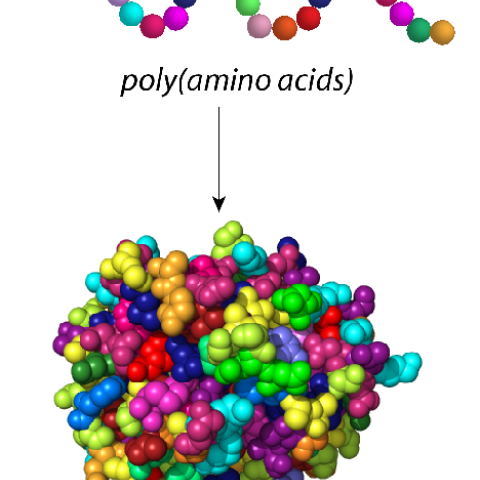Seminar | October 28 | 2-3 p.m. | 180 Tan Hall
Prof. Allie Obermeyer, Columbia, Chemical Engineering
Berkeley Nanosciences and Nanoengineering Institute
Protein de-mixing has been implicated in the organization of cellular components. These phase-separated membraneless compartments create distinct environments that are essential to cellular processes ranging from cell signaling to gene expression. Several membraneless organelles appear to have the same physical properties as complex coacervates liquid-liquid phase separated mixtures of oppositely charged polyelectrolytes.
However, protein polymers differ significantly from synthetic polyelectrolytes. Proteins are amphoteric, have low charge density, and frequently adopt a globular folded structure. These differences impact the complexation and phase separation of proteins with (bio)polyelectrolytes.
We have engineered proteins to determine predictive design rules for intracellular complex coacervation with biological polyions. We employ these design rules to create synthetic organelles by promoting phase separation of engineered proteins of interest in E. coli.
******
Allie Obermeyer did her PhD here at UCB (Go Bears!) in Chemical Biology with Matt Francis, and postdoc at MIT. She joined Columbia in 2017, where she has an NSF CAREER award and other biomaterials funding.
victorr@eecs.berkeley.edu, 510-643-6681
Avi Rosenzweig, victorr@eecs.berkeley.edu, 510-643-6681

